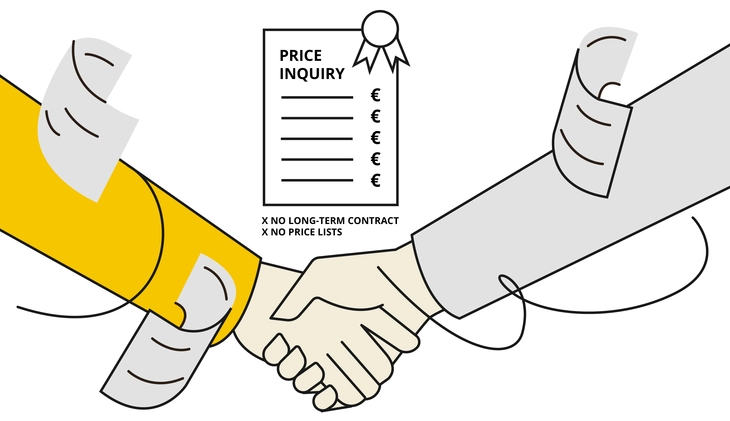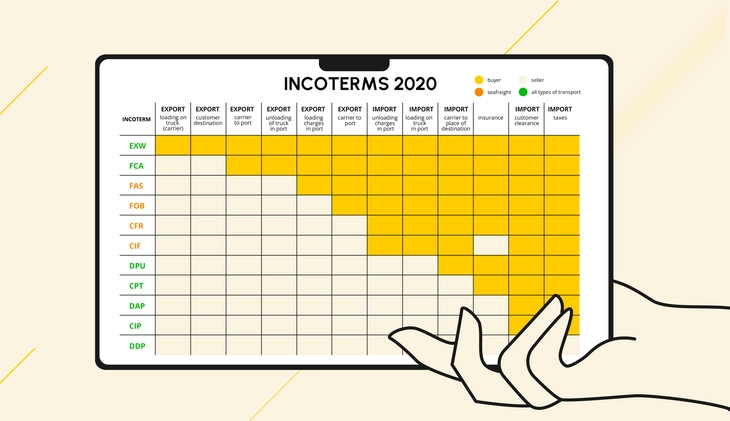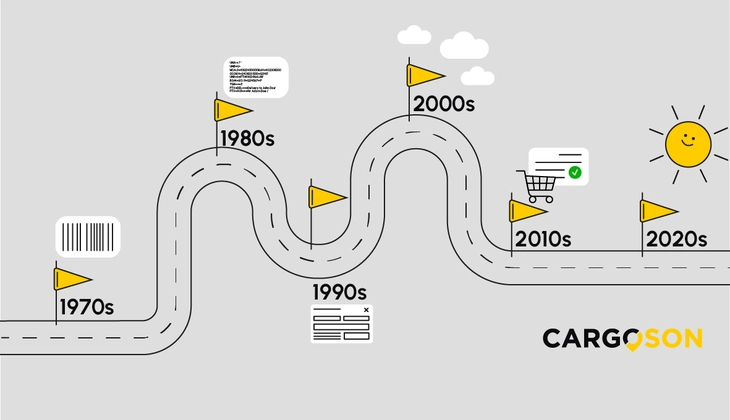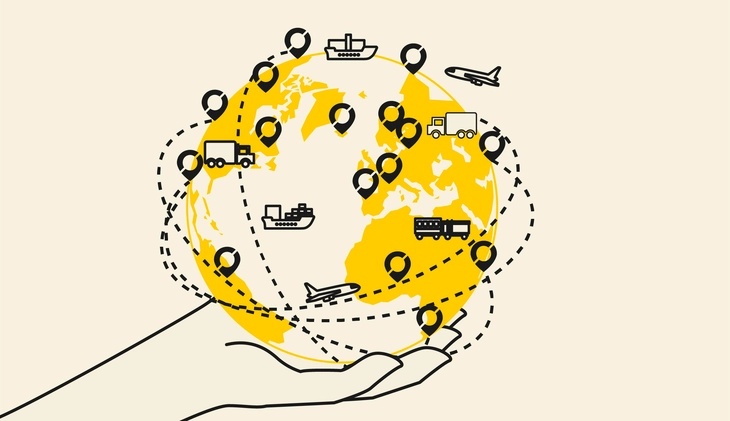Manufacturing companies are facing a number of transport-related problems. The most common problem is the lack of a single system to manage all their logistics and freight management.
Yet there are many other problems that manufacturing companies face, such as production, warehousing, and distribution.
Good Transport Management Software (TMS) can help with these problems by providing better solutions for the manufacturing company's logistics and freight management needs. It can also help with production planning, warehousing management, and distribution issues.
Yet there are many other problems that manufacturing companies face, such as production, warehousing, and distribution.
Good Transport Management Software (TMS) can help with these problems by providing better solutions for the manufacturing company's logistics and freight management needs. It can also help with production planning, warehousing management, and distribution issues.
Transport Management Software - a crucial role in the efficiency of any manufacturing company.
The manufacturing supply chain touches nearly every industry and is responsible for an enormous portion of the world's economic output. The TMS software plays a major role in all aspects of the manufacturing process, from production to delivery. Using Transport Management Software allows Manufacturers to make smarter decisions in order to maximize process efficiency, have a full overview of logistics and keep costs optimal.
TMS for Manufacturers, the main aspects to weigh are how Transport Management software can support an organization's production planning, yard management, an overview of inbound & outbound freight deliveries, and providing transparency into cost and transit time when shipping goods.
Features & Benefits of TMS For Manufacturers
Transport Management System (TMS) offers several features and benefits for Manufacturing companies, including:
Features:
- Rate Management - Managing freight rates, ad-hoc quotation, carrier selection, and booking optimization
- Carrier Management - Managing carrier performance, contracts, and compliance
- Order Management - Managing transport orders, freight documents, communication and tracking
- Yard Management - Managing the loadings and movement of trailers in factory or warehouse territory.
- Reporting and Analytics - Generating reports and analytics on transport operations and performance
Benefits:
- Improved efficiency and productivity - TMS can streamline the transportation process and help reduce manual errors, leading to improved efficiency and productivity.
- Cost savings - TMS can help optimize shipping routes, consolidate orders, and negotiate better rates with carriers, leading to cost savings.
- Improved visibility and tracking - TMS provides real-time visibility into the transport process, allowing manufacturers to track shipments, monitor carrier performance, and resolve any issues quickly.
- Increased customer satisfaction - TMS can help manufacturers deliver goods to customers faster and more reliably, improving customer satisfaction.
- Better decision-making - TMS provides real-time data and analytics, allowing manufacturers to make data-driven decisions to improve their supply chain and transportation operations.

Cost Considerations for Implementing a TMS
Implementing a Transport Management System (TMS) can be a significant investment for a manufacturing company. Some of the cost considerations to keep in mind include:
- TMS Software and Licensing Costs: This includes the cost of purchasing the TMS software and any necessary licenses. The cost of the software can vary depending on the vendor, the size of the company, and the specific features and functionality required.
- Implementation Costs: This includes the cost of implementing the TMS, which can involve hardware and software installation, configuration, and testing. The implementation costs can vary depending on the complexity of the implementation and the level of customization required.
- Training and Support Costs: This includes the cost of training staff on how to use the TMS, as well as ongoing support and maintenance. Training and support costs can vary depending on the complexity of the software and the level of support required.
- Integration Costs: This includes the cost of integrating the TMS with existing software systems, such as enterprise resource planning (ERP) software, warehouse management systems (WMS), and order management systems (OMS).
It's important to consider these costs when evaluating the potential return on investment (ROI) of implementing a TMS in a manufacturing company. While there are significant benefits to using a TMS, it's important to ensure that the costs are justified and that the implementation will provide a positive ROI.
Integrating TMS With Your Existing Systems
Integrating a Transport Management System (TMS) with existing systems such as Enterprise Resource Planning (ERP) or Warehouse Management System (WMS) requires careful planning and execution. Some key considerations to keep in mind include:
- Compatibility: Ensure that the TMS is compatible with your existing ERP or WMS system. This can involve reviewing technical specifications, conducting compatibility testing, and verifying that the TMS can integrate with the existing system in a way that supports business processes and data requirements.
- Data Integration: Determine what data needs to be integrated between the TMS and the ERP or WMS system. This can involve identifying key data fields, such as customer information, order details, and shipment data, and ensuring that the TMS can capture and transmit this information to the ERP or WMS system in a timely and accurate manner.
- Business Processes: Consider how the TMS integration will impact existing business processes. This can involve reviewing workflows, identifying potential process improvements, and ensuring that the TMS integrates seamlessly into existing processes without disrupting operations.
- Implementation Plan: Develop a detailed implementation plan that outlines the steps required to integrate the TMS with the existing ERP or WMS system. This can involve setting timelines, assigning responsibilities, and conducting thorough testing to ensure that the integration is successful.
- Support and Maintenance: Establish a plan for ongoing support and maintenance of the TMS integration. This can involve ensuring that the TMS vendor provides adequate support and training, and that internal staff are trained to manage any issues that may arise.
By carefully considering these factors when integrating a TMS with an existing ERP or WMS system, manufacturers can optimize their supply chain operations and achieve greater efficiencies and cost savings.

Leveraging Automation to Optimize Your Transportation Processes
Leveraging automation to optimize transportation processes can be a very good idea for manufacturing companies, as it can bring numerous benefits including increased efficiency, cost savings, and improved customer satisfaction. Here are some of the advantages of using automation in transportation:
- Efficiency: Automation can help speed up transportation processes, reducing transit times and improving order fulfillment rates.
- Cost Savings: By automating transportation processes, manufacturers can reduce manual labor costs, optimize shipping routes, and consolidate orders, leading to significant cost savings.
- Improved Visibility: Automation can provide real-time visibility into the transportation process, allowing manufacturers to track shipments, monitor carrier performance, and quickly resolve any issues that may arise.
- Improved Customer Satisfaction: Automation can help manufacturers deliver goods to customers faster and more reliably, improving customer satisfaction.
- Better Decision-Making: Automation provides real-time data and analytics, allowing manufacturers to make data-driven decisions to improve their supply chain and transportation operations.
Why is Implementing TMS software crucial for Manufacturers in 2025
Implementing Transport Management System (TMS) software has become crucial for manufacturers in 2025 due to several factors. Here are some of the key reasons:
- Increased competition: The manufacturing industry is becoming increasingly competitive, and companies need to optimize their operations to remain competitive. By implementing TMS software, manufacturers can improve the efficiency of their transportation operations, reduce costs, and improve customer satisfaction.
- Supply chain complexity: The global supply chain has become more complex, with multiple transportation modes and routes involved in delivering products. TMS software can help manufacturers manage this complexity by providing real-time visibility into transportation operations and enabling them to optimize logistics processes and manage inventory.
- Customer expectations: Customers expect faster and more reliable delivery of goods, which requires manufacturers to optimize their transportation operations. TMS software can help manufacturers meet these expectations by providing real-time visibility and tracking of shipments, automatic notifications to customers & suppliers, and reducing transit times.
- Cost reduction: Transportation costs are a significant expense for manufacturers, and optimizing transportation operations can help reduce costs. TMS software can help manufacturers reduce transportation costs by offering possibility to quote, compare alternatives, automate logistics tasks, and reducing manual labor costs.
- Technology advancements: With advancements in technology, TMS software has become more advanced and accessible, making it easier for manufacturers to implement and use. Cloud-based TMS software has made it easier to manage transportation operations from anywhere in the world, and machine learning and artificial intelligence have enabled more sophisticated optimization possibilities and predictive analytics.
Conclusion
Overall, implementing TMS software is crucial for manufacturers in 2025 as it can help them remain competitive, manage supply chain complexity, meet customer expectations, reduce costs, and take advantage of technological advancements in the transportation industry.






